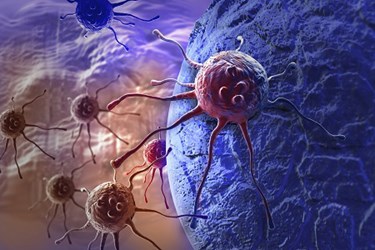Novartis, University Of Pennsylvania To Build Center For CAR Research

Novartis and the University of Pennsylvania announced their plans to build the Center for Advanced Cellular Therapeutics (CACT) on the Penn Medicine campus in Philadelphia.
The center will be dedicated to advancing research in Chimeric Antigen Receptor technology (CAR). CAR is a cellular cancer therapy approach wherein a cancer patient’s cells are reprogrammed outside the body to regain their ability to recognize and attack cancer cells before being re-infused back into the patient. Novartis and University of Pennsylvania are entering the ring with several other firms that are currently at work investigating CAR therapy against cancer in separate studies, including the Memorial Sloan Kettering Cancer Center and Kite Pharmaceuticals.
Construction for the new CACT building will be partly funded through a $20 million investment from Novartis. The CACT will roughly double Penn’s capacity to investigate new uses for CAR therapies. The center will be used to discover, develop, and produce personalized cellular cancer therapies through a joint R&D program conducted by both Novartis and University of Pennsylvania scientists. It will also house the latest technology tools for vaccine and assay development, as well as blood and biospecimens studies, which will help determine how trial subjects respond to CAR therapies.
This July, the U.S. Food and Drug Administration (FDA) approved CTL019, a Penn-developed CAR therapy for leukemia. Carl June, director of Translational Research in Penn’s Abramson Cancer Center, said, “The results we’ve seen among the leukemia patients we’ve treated using our ‘hunter’ cells have accelerated our expectations for the potential of these new therapies. Today, many of those brave patients are thriving, and through our work in the CACT, we hope to offer that chance to patients with many other types of cancers.”
“The number of opportunities to treat heretofore lethal diseases [with CAR T cell therapies] now is legion. This new joint center is testimony to the power that comes from merging academic discovery directly to the generation of new medicines,” said Mark Fishman, President of the Novartis Institutes for Biomedical Research. Novartis’ collaboration with Penn dates back to August 2012 when the company entered into a global, multi-year research and licensing deal for new CAR therapies.
The partners said the new CACT facility is set to be completed in 2016.
